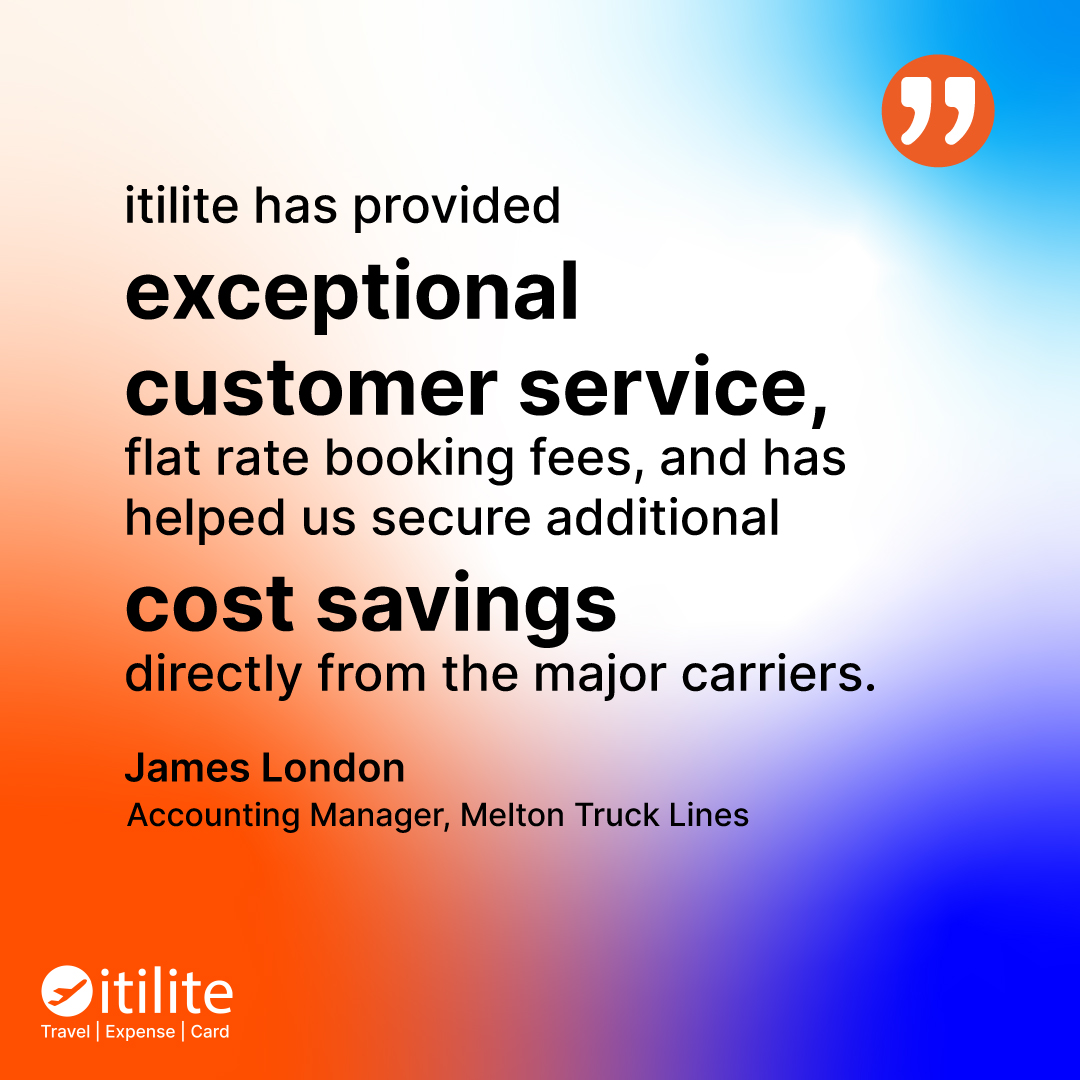
Managing corporate travel isn’t just about booking flights and hotels – it also involves ensuring payments are handled correctly and efficiently. One critical yet often overlooked aspect is evaluating how your corporate travel agency manages hotel payments.
A well-structured hotel payment system is essential for cost control, policy compliance, and a seamless travel experience. However, many businesses fail to assess their agency’s payment processes until issues arise. Are payments being processed securely and efficiently? Are there hidden fees affecting your budget? Are employees facing check-in issues due to payment failures?
In this blog, we’ll explore why evaluating your travel agency’s hotel payment process is essential, the warning signs of a poor system, and the key questions to ask your travel agency to ensure their hotel payment service meets your business needs.
Why Evaluating Hotel Payment Services is Important?
Hotel payments are more than just transactions—they directly impact traveler experience, budget control, and policy compliance. A flawed payment process can result in overcharges, booking rejections, and reimbursement delays, creating unnecessary stress for both travelers and finance teams.
By evaluating your travel agency’s hotel payment system, you can ensure seamless stays, prevent unexpected costs, and improve financial oversight. Here’s why it matters:
1. Cost Control & Transparency
A strong payment system should provide clear, itemized billing that accurately reflects the agreed-upon rates. This transparency prevents unexpected charges, such as hidden fees, incorrect taxes, or unexplained service charges, that can inflate travel expenses.
Additionally, a good system allows companies to track spending efficiently, helping finance teams analyze patterns and find opportunities for cost savings. If an agency lacks robust cost tracking, it becomes challenging to enforce corporate travel policies and stay within budget.
2. Operational Efficiency
An efficient hotel payment process eliminates the need for time-consuming manual work. If your agency relies on outdated payment methods – such as physical credit cards or manual invoice processing – it can lead to delays in approving and reimbursing hotel payments.
A streamlined payment system automates much of the process, ensuring that invoices are approved and settled quickly. This reduces administrative burdens on both travel coordinators and finance teams, freeing up time to focus on higher-priority tasks.
3. Compliance & Risk Management
Corporate travel payments must adhere to company policies and financial regulations. A well-structured payment system ensures compliance by implementing clear approval workflows, fraud detection mechanisms, and secure payment methods.
For instance, agencies that use virtual credit cards (VCCs) can enhance security by providing one-time-use payment details, reducing the risk of fraud or misuse. Additionally, compliance with standards such as PCI DSS (Payment Card Industry Data Security Standard) ensures that sensitive financial information is protected from data breaches.
If an agency lacks these security measures, it puts the company at risk of fraudulent transactions, data theft, and regulatory non-compliance, which can lead to financial losses and reputational damage.
4. Data Integration & Reporting
A high-functioning hotel payment system should integrate seamlessly with your company’s financial and expense management platforms. When payment data is automatically fed into accounting and expense tracking systems, it simplifies reconciliation and improves visibility into travel spending.
Robust reporting capabilities allow travel managers to generate real-time insights, such as spending trends, compliance rates, and cost overruns. Without these reports, companies struggle to make data-driven decisions about their travel budgets, leading to inefficiencies and missed cost-saving opportunities.
5. Vendor Relationship Management
A reliable payment system strengthens relationships with hotel vendors. Hotels prioritize corporate clients who have a history of timely payments and clear communication. If an agency frequently delays payments or disputes invoices without valid reasons, it can strain relationships with hotel partners, leading to fewer negotiated discounts and limited availability during peak travel periods.
By ensuring that payments are processed efficiently, companies can maintain positive relationships with hotel partners and potentially secure better corporate rates and perks, such as free upgrades or extended check-out times.
Signs of a Poor Hotel Payment Process
A poor hotel payment process can create unnecessary financial risks, operational inefficiencies, and traveler frustrations. If your travel agency exhibits multiple warning signs from this list, it may be time to demand improvements or consider a more reliable travel management partner.
1. Billing Inconsistencies
A major red flag in a travel agency’s hotel payment system is inconsistent billing. Frequent discrepancies – such as incorrect charges, duplicate billings, or unexpected fees – signal a lack of oversight and poor financial management.
- Hidden Fees: Unexpected charges for Wi-Fi, resort fees, or service fees that weren’t disclosed upfront indicate poor transparency and a failure to properly negotiate corporate rates.
- Rate mismatches: If the amount billed doesn’t match the pre-approved corporate rate, the agency may not be properly enforcing agreements.
2. Delayed Payments
Timely payments are critical for smooth hotel stays. If you consistently encounter these issues, it may be time to reassess your travel agency:
- Hotels deny check-ins or request additional security deposits from travelers.
- The company incurs late fees due to delayed payments.
- Finance teams are spending extra time resolving outstanding balances.
3. Delayed Refunds
If billing disputes or cancellations take months to resolve, your agency’s payment system lacks efficiency.
- Slow refunds: If a canceled hotel booking takes excessive time to process a refund, leading to either cash flow issues for the company or frustration for employees.
- Lack of escalation protocols: Your travel agency does not have a structured process for handling refunds promptly and ensuring fair resolutions.
4. Employees Facing Payment Issues at Check-In
A well-managed hotel payment system should prevent employees from experiencing check-in problems. If travelers frequently report:
- Payment rejections at the front desk despite pre-approved bookings, it indicates that the agency is not properly transmitting payment details.
- Hotels demanding personal credit cards for charges that should have been handled by the company, it suggests gaps in communication between the agency and hotels.
These failures can cause delays, frustration, and financial stress for traveling employees.
5. Inefficient Reconciliation Process
A travel agency should provide a seamless reconciliation process where payments and bookings align automatically. Warning signs of inefficiencies include:
- Finance teams manually verifying transactions across different systems.
- Frequent errors requiring corrections that delay financial reporting.
- Unclear documentation that makes it difficult to match payments to specific bookings.
6. Unsecured Payment Methods
Security is a critical aspect of corporate hotel payments. A poor system may:
- Use outdated methods like faxed credit card authorizations, which expose financial data to fraud risks.
- Lack security controls, increasing the risk of unauthorized transactions or misuse of company funds.
- Fail to use virtual credit cards (VCCs), which provide a more secure and trackable payment solution.
7. Lack of Real-Time Reporting & Data Visibility
Without real-time reporting, companies lack insight into hotel spending.
- If travel managers must manually compile data, it suggests a lack of automation.
- Inability to track policy compliance or spending trends makes it harder to optimize travel budgets.
- A lack of visibility can lead to uncontrolled costs and missed opportunities for cost savings.
8. Poor Customer Support & Issue Resolution
If payment disputes or issues take too long to resolve, it indicates a weak support structure.
- Slow response times for billing inquiries cause frustration and delays.
- No dedicated account manager means travel coordinators must repeatedly explain the same issue to different representatives.
- Lack of escalation procedures prevents urgent payment problems from being resolved promptly.
A strong travel agency should offer 24/7 customer support, clear escalation paths, and fast resolution times for payment issues.
Questions to Ask Your Travel Agency to Ensure Their Hotel Payment Service Meets Your Business Needs
Here are 10 key questions to ask your corporate travel agency to ensure they meet your business needs:
- How do you manage hotel payments to prevent overcharges and pre-authorization issues?
- Do you offer virtual cards or centralized payments for greater control and efficiency?
- What safeguards are in place to prevent billing errors and hidden fees?
- Can you guarantee 100% policy compliance for hotel bookings and payments?
- How do you negotiate hotel rates, and what discounts or benefits can we expect?
- Do you provide real-time visibility into hotel transactions and spending data?
- What support is available if a traveler encounters payment issues at check-in?
- Can you integrate hotel payment data seamlessly with our expense management system?
- How do you process refunds and handle chargebacks for incorrect hotel charges?
- What security measures are in place to protect our hotel payment data?
Ensure Hassle-Free Hotel Payments with the Right Travel Partner
Evaluating your corporate travel agency’s hotel payment process is essential for cost control, policy compliance, accurate reporting, and employee satisfaction. By recognizing the warning signs outlined above, you can address inefficiencies, enhance payment security, and ensure a seamless booking and check-in experience for your travelers.
If your current travel agency’s hotel payment process is causing frequent issues, it’s time to switch to a smarter, more efficient solution. Itilite automates credit card authorizations and streamlines hotel payments, and enables automated reconciliation, eliminating manual errors and delays. With real-time visibility, 100% policy compliance, and a hassle-free payment process, your employees can focus on their work instead of dealing with payment disputes.
Don’t let hotel payment inefficiencies slow your business down. Optimize your travel program with Itilite and save thousands of dollars annually while enhancing the traveler experience.


















